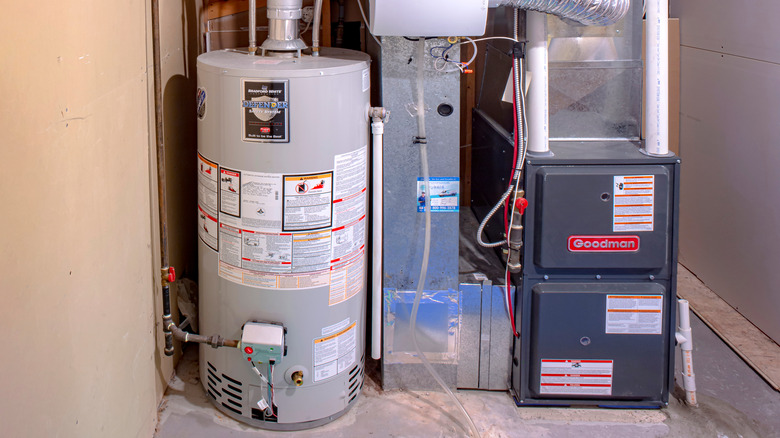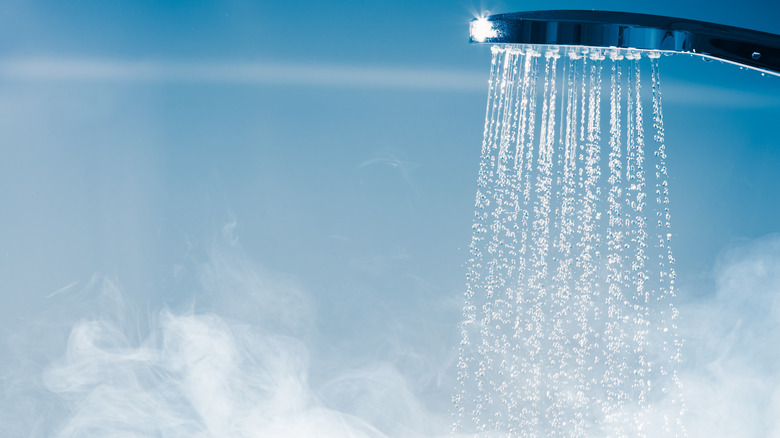3 Signs Your Water Heater Is About To Stop Working
A failing water heater can be disastrous. An average tank holds about 50 gallons of water which could be released suddenly into your home if there is a leak, per Water Heater Leaking Info. What's worse, the failed appliance will continue to refill and flood your home with more water. If this happens, it's necessary to shut off the emergency water valve immediately. The effects can be extensive in such cases, as the water can seep under the carpet and damage the wood underneath, via Gold Coast Flood and Mold Specialists. It can corrode the drywall, weaken the wooden studs within the walls, and mold will begin to spread.
Luckily, there are signs you can watch for to prevent this kind of disaster from occurring. You can look for these indicators by paying attention to the water you're using or inspecting the unit itself. Here are some ways to keep tabs on what's happening with your water heater so that this catastrophe doesn't happen to you.
1. Lukewarm water
One of the best ways to check to see if your water heater is failing is also the most straightforward. After a workout, have you tried to jump into a hot shower only to find that the water is merely tepid? It's not a satisfying start to your day, but it's even more troublesome than that. Believe it or not, the absence of hot water is one of the first indicators that something is wrong with your water heater, according to Benjamin Franklin Plumbing.
Every time water is heated, mineral deposits collect at the bottom of the tank. This residue will accumulate over the years, and eventually, the sludge will block the heating element when it tries to heat the water. When you notice that your muscles are still sore after that lukewarm shower, you might realize it's time to grab your tools and check the water heater unit!
2. The tank is leaking
Another straightforward way to check to see if there's something wrong is to take a look underneath the tank of the water heater. If you notice water collecting beneath the tank, this is a severe indication that the unit is about to fail, according to Best San Diego Leak Detection. There is no time to waste — shut off the main water supply valve and call a plumber immediately. This leak could result from a tank crack that could rupture and begin to flood your home.
It may seem daunting to consider the price of replacing a water heater, but what you would pay for a new unit is much less than the cost of repairing a flooded home. The typical price for a new unit to be installed is approximately $1,200, which also allows for labor, via Forbes. For comparison, the cost to repair a flooded basement could range from $500 to $10,000, per The Crack Guys. That estimate will increase substantially if your water heater is located elsewhere in your home, such as in the attic.
3. The water heater is old
One of the most important ways to monitor the health of your water heater is to keep a record of when it was installed. Most water heaters are designed to last between 8 to 12 years, via A.J. Alberts Plumbing. But waiting to see the obvious signs of failure is not worth the gamble.
It is recommended to replace your water heater about two years before you think you need to. It makes sense to plan to replace the appliance when it's about 8 to 10 years old. Doing so will allow you to prepare a budget for the new unit and research your options to find deals on the one that's the best fit. Making plans to replace the water heater before it breaks will also help you avoid the misery caused by a failed unit, whether it is flood damage or simply a tepid morning shower.



